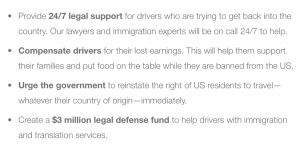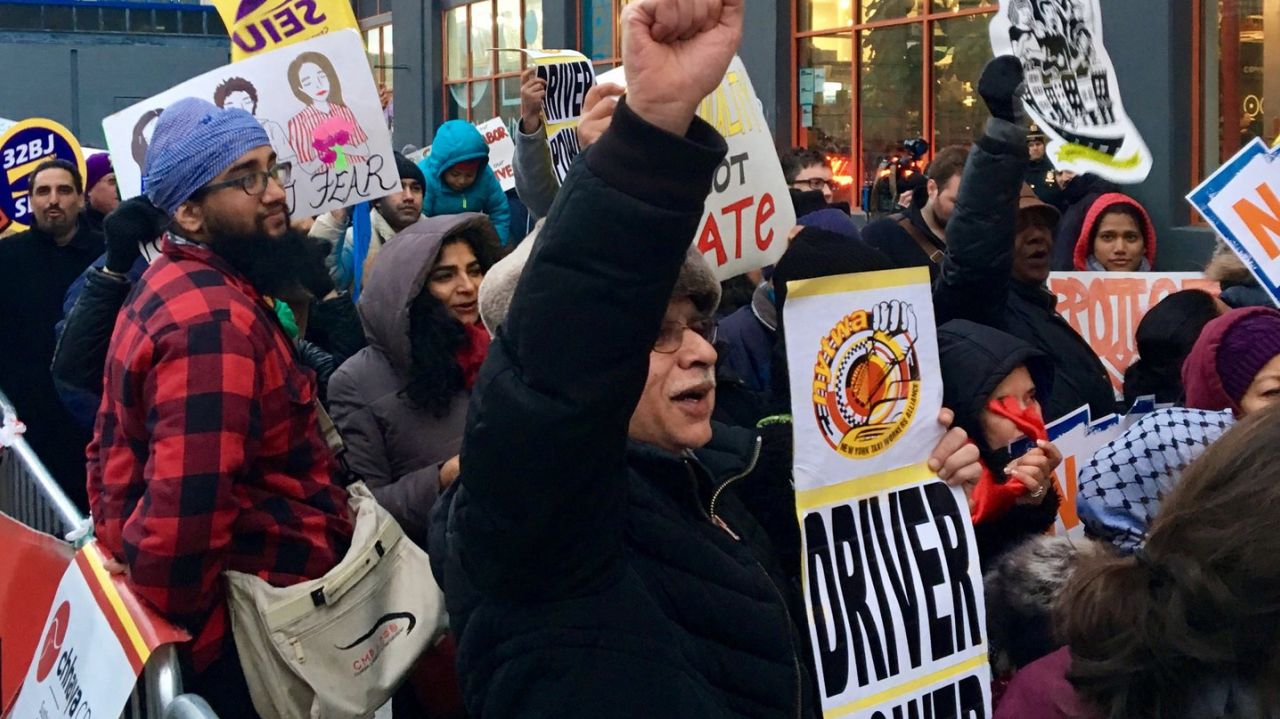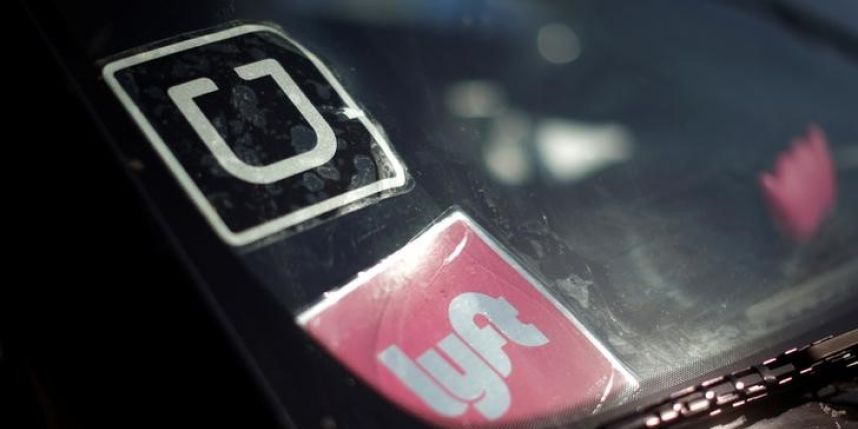On Feb. 2, the CEO of Uber—Travis Kalanick—removed himself from President Donald Trump’s economic advisory council. Kalanick’s decision to quit the council came several days after Uber came under fire for its actions at a New York City (NYC) airport in the aftermath of Trump’s immigration executive order.
Trump’s executive order, signed on Jan. 27, indefinitely suspended the resettlement of Syrian refugees and temporarily paused all other refugee arrivals, additionally blocking nationals from seven Muslim-majority nations—Iran, Iraq, Libya, Somalia, Sudan, Syria and Yemen—from travelling to the United States. As the order was implemented, hundreds of immigrants were detained at airports across the country, including at John F. Kennedy (JFK) International Airport in NYC.
In response to these detainments, protests erupted at several U.S. airports, including at JFK. The New York Taxi Workers Alliance announced an hour-long strike to demonstrate solidarity with immigrants being detained there. The strike took place on Jan. 28 from 6-7 p.m. Uber continued to operate as travelers and protesters alike still required rides to reach their destinations. However, Uber’s automatic “surge” pricing, which increases fares when demand is high, was turned off in what Uber described as a specific attempt “to avoid profiting from increased demand during the protest.” Ironically, this move likely ended up hurting Uber.
Uber’s NYC Twitter account posted the announcement at 7:36 p.m., and many Twitter users soon considered Uber’s Tweet an attempt by the company to exploit the circumstances and increase business profits. An immediate outflow of opposition to Uber led to the trending #DeleteUber hashtag as thousands of users deleted the Uber mobile app and deactivated their accounts.
https://twitter.com/Uber_NYC/status/825502908926066688
Lyft—Uber’s primary competitor—also operated as normal on that Saturday night in NYC. However, Lyft did not post anything on its Twitter account regarding lower prices or continued operations. As a result, Uber was identified as the strikebreaker and profiteer, suffering on social media. The next morning, Lyft announced its intent to donate $1 million to the American Civil Liberties Union (ACLU), which had just scored a legal victory against the executive order after a judge halted deportations of detainees earlier that Saturday.
Another factor that hurt Uber was its CEO’s connection to President Trump. Kalanick was a member of Trump’s economic advisory council at the time, along with other top business leaders including those of Pepsi, General Electric, and Disney. The combination of online anger with an unfavorable political connection spelled trouble for Uber. As many users turned against Uber, Lyft benefited. In a single Tweet, Uber drew attention to itself and was painted as an enemy of immigrants, refugees and Muslims. Lyft, on the other hand, surpassed Uber in downloads on the App Store for the first time ever.
Anger towards Uber as a company is unjustified, considering both ridesharing companies were operating on that night in NYC and both companies have clarified their positions relating to Trump’s executive order. In an email sent to drivers—and later publicly posted by Uber—Kalanick labeled the executive order as an “unjust and wrong immigration ban.” Below are four action steps Uber has committed to, which were included in Kalanick’s email.

Throughout this controversy, Uber has maintained its integrity as a company. During the JFK airport protest and the taxi strike, flights still departed and landed, people still needed rides, and Uber drivers still needed to provide for themselves and their families. Consequently, Uber operated. In what was clearly an honest move to prevent profiteering, Uber disabled surge pricing. Had Uber not taken this step, the unusual demand caused by the taxi strike and the protest would have led to significantly higher fares, costing riders greatly while increasing profits for the company. The following day, Uber—led by Kalanick—clarified its values as a company. Facing concerns from employees and customers, Kalanick left Trump’s economic advisory council to remove the misperception that he supports President Trump’s agenda. Kalanick has been publicly adamant in his opposition against the executive order and has taken a stand for what he and his company believes in. In each instance, Uber has reacted appropriately and responsibly.
Uber’s intent to help people was wrongly misinterpreted as an attempt to put profits over people. In reality, Uber’s actions during the protest clearly suggest the opposite. In the subsequent social media firestorm, Uber was misrepresented as anti-immigrant, anti-refugee, and anti-Muslim. However, the company expressed clearly their position on these issues. Judging by the removal of surge pricing during the strike and strong statements by Kalanick against the executive order, Uber is undeserving of the misguided #DeleteUber social media movement. In an incredibly tense political climate, it appears Uber has become the latest victim of reactionary, misinformed Americans choosing the wrong enemies to boycott.


